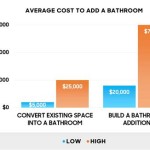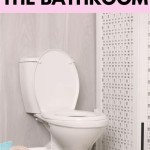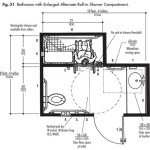Frequent Urination: Understanding the Need to Go Every Hour
Frequent urination, defined as needing to urinate more often than what is considered normal for an individual, can significantly disrupt daily life. The average person urinates around six to eight times a day. Experiencing the urge to urinate every hour, or even more frequently, warrants further investigation. This article explores the potential causes, associated symptoms, and diagnostic approaches related to this condition.
Understanding what constitutes "normal" bladder function is crucial. Bladder capacity varies from person to person and is influenced by factors such as age, overall health, and fluid intake. The bladder functions as a storage reservoir for urine produced by the kidneys. When the bladder fills to a certain point, signals are sent to the brain, creating the sensation of needing to urinate. The urge to urinate frequently arises when this signaling process is disrupted or when the bladder capacity is compromised.
Potential Causes of Hourly Urination
Several factors can contribute to the need to urinate every hour. These range from lifestyle-related issues to underlying medical conditions. Identifying the root cause is essential for implementing appropriate management strategies.
1. Increased Fluid Intake: One of the most obvious reasons for frequent urination is simply drinking more fluids. This includes water, juices, coffee, tea, and even foods with high water content, such as fruits and vegetables. Excess fluid consumption leads to increased urine production, thereby increasing the frequency of urination. Furthermore, certain beverages, particularly those containing caffeine or alcohol, have diuretic effects, meaning they stimulate the kidneys to produce more urine.
2. Urinary Tract Infections (UTIs): UTIs are a common cause of frequent and urgent urination, particularly in women. These infections occur when bacteria, most commonly Escherichia coli (E. coli), enter the urinary tract and infect the bladder, urethra, or kidneys. The infection irritates the lining of the bladder and urinary tract, leading to inflammation and a heightened sensation of needing to urinate, even when the bladder is not full. Other symptoms of a UTI include burning during urination, cloudy or bloody urine, and pelvic pain.
3. Overactive Bladder (OAB): Overactive bladder is a condition characterized by a sudden, uncontrollable urge to urinate, often accompanied by frequent urination and nocturia (the need to urinate during the night). OAB occurs when the bladder muscles contract involuntarily, creating the sensation of needing to urinate even if the bladder is not full. The exact cause of OAB is not always known, but it can be related to nerve damage, muscle weakness, or certain medications.
4. Diabetes: Both type 1 and type 2 diabetes can lead to frequent urination. In individuals with diabetes, the body struggles to regulate blood sugar levels effectively. When blood sugar levels are high, the kidneys work harder to filter the excess glucose from the blood. This process results in increased urine production, leading to frequent urination, particularly at night. Excessive thirst is also a common symptom of diabetes, contributing to increased fluid intake and further exacerbating the problem.
5. Interstitial Cystitis (IC): Interstitial cystitis, also known as painful bladder syndrome, is a chronic bladder condition that causes bladder pain, pressure, and frequent urination. The exact cause of IC is unknown, but it is thought to be related to inflammation or damage to the bladder lining. Symptoms can vary in severity and may include a persistent urge to urinate, frequent urination during the day and night, and pain in the bladder, pelvis, or abdomen. It is often misdiagnosed as a chronic UTI.
6. Pregnancy: Frequent urination is a common symptom during pregnancy, particularly in the first and third trimesters. In the early stages of pregnancy, hormonal changes increase blood flow to the kidneys, leading to increased urine production. In the later stages, the growing uterus puts pressure on the bladder, reducing its capacity and increasing the urge to urinate. These physiological changes often result in the need to urinate more frequently, including every hour.
7. Medications: Certain medications can have diuretic effects, increasing urine production and leading to frequent urination. These include diuretics prescribed for conditions such as high blood pressure and edema, as well as certain antidepressants and antihistamines. If frequent urination starts after beginning a new medication, it is important to discuss this side effect with a healthcare provider.
8. Prostate Issues: In men, an enlarged prostate (benign prostatic hyperplasia, or BPH) can put pressure on the urethra, making it difficult to empty the bladder completely. This can lead to frequent urination, urgency, and nocturia. Prostate cancer can also cause similar symptoms, though it is less common. A prostate exam is typically recommended to rule out these possibilities.
9. Neurological Conditions: Certain neurological conditions, such as multiple sclerosis, Parkinson's disease, and stroke, can affect bladder control and lead to frequent urination. These conditions can damage the nerves that control the bladder, disrupting the signaling between the brain and the bladder and causing involuntary bladder contractions.
10. Anxiety and Stress: In some cases, anxiety and stress can contribute to frequent urination. Stress can trigger the body's "fight or flight" response, which can lead to increased muscle tension and bladder spasms. This can result in the feeling of needing to urinate more frequently, even when the bladder is not full.
Associated Symptoms
Frequent urination is often accompanied by other symptoms, which can provide valuable clues to the underlying cause. These symptoms can help healthcare providers make an accurate diagnosis and develop an appropriate treatment plan.
1. Urgency: A sudden, strong urge to urinate that is difficult to delay. This is a hallmark symptom of overactive bladder and can also occur with UTIs and interstitial cystitis.
2. Nocturia: The need to wake up one or more times during the night to urinate. Nocturia can disrupt sleep and significantly impact quality of life. It is commonly associated with overactive bladder, diabetes, and prostate problems.
3. Dysuria: Painful or burning urination. This is a common symptom of UTIs and can also occur with interstitial cystitis.
4. Hematuria: Blood in the urine. Hematuria can be a sign of a UTI, kidney stones, bladder cancer, or other urinary tract problems. It is important to seek medical attention if you notice blood in your urine.
5. Polyuria: Excessive urine production. Polyuria is often associated with diabetes and can also occur with certain medications.
6. Pelvic Pain: Pain in the lower abdomen, pelvis, or bladder. Pelvic pain is a common symptom of interstitial cystitis and can also occur with UTIs or other bladder conditions.
Diagnostic Approaches
Diagnosing the cause of frequent urination involves a thorough medical history, physical examination, and various diagnostic tests. The specific tests recommended will depend on the individual's symptoms and medical history.
1. Medical History and Physical Examination: A healthcare provider will ask about your symptoms, fluid intake, medications, and medical history. A physical examination may include checking your abdomen, genitals, and prostate (in men).
2. Urinalysis: A urine sample is tested to look for signs of infection, blood, or other abnormalities. Urinalysis is a standard test for diagnosing UTIs and can also provide clues about other underlying conditions.
3. Urine Culture: If a urinalysis shows signs of infection, a urine culture may be performed to identify the specific type of bacteria causing the infection. This helps guide antibiotic treatment.
4. Bladder Diary: Keeping a bladder diary involves recording your fluid intake, urination frequency, and the amount of urine you pass over a period of several days. This can help identify patterns and triggers for frequent urination.
5. Post-Void Residual (PVR) Measurement: This test measures the amount of urine remaining in the bladder after urination. A high PVR may indicate that the bladder is not emptying completely, which can contribute to frequent urination.
6. Urodynamic Testing: Urodynamic tests assess how well the bladder and urethra are functioning. These tests can measure bladder capacity, bladder pressure, and urine flow rate. They are often used to diagnose overactive bladder and other bladder conditions.
7. Cystoscopy: Cystoscopy involves inserting a thin, flexible tube with a camera attached (cystoscope) into the urethra to visualize the inside of the bladder. This can help identify abnormalities such as bladder stones, tumors, or inflammation.
8. Blood Tests: Blood tests may be performed to check for diabetes, kidney problems, or other underlying medical conditions.
Understanding the potential causes, associated symptoms, and diagnostic approaches related to frequent urination, particularly the need to urinate every hour, is crucial for seeking timely medical attention and appropriate management. Depending on the identified cause, treatment options may include lifestyle modifications, medications, or other interventions aimed at restoring normal bladder function and improving quality of life.

Frequent Causes What It Means How To Stop

Where I Watch My Stories Bathroom Musings

Frequent Anxiety Symptoms Anxietycentre Com

Creating A Potty Training Schedule That Works

Why Do Husbands Take So Long To Poop Experts Explain What They Might Be Doing

Tired Of Rushing To The Bathroom Livermore Physical Therapy

Is Just In Case Bad For Your Bladder Health The New York Times

I Cant Stop Using The Bathroom Tiktok

Potty Training S For An Hour Bebefinn Healthy Habits Poo More Nursery Rhymes
How To Stop At Night
See Also







